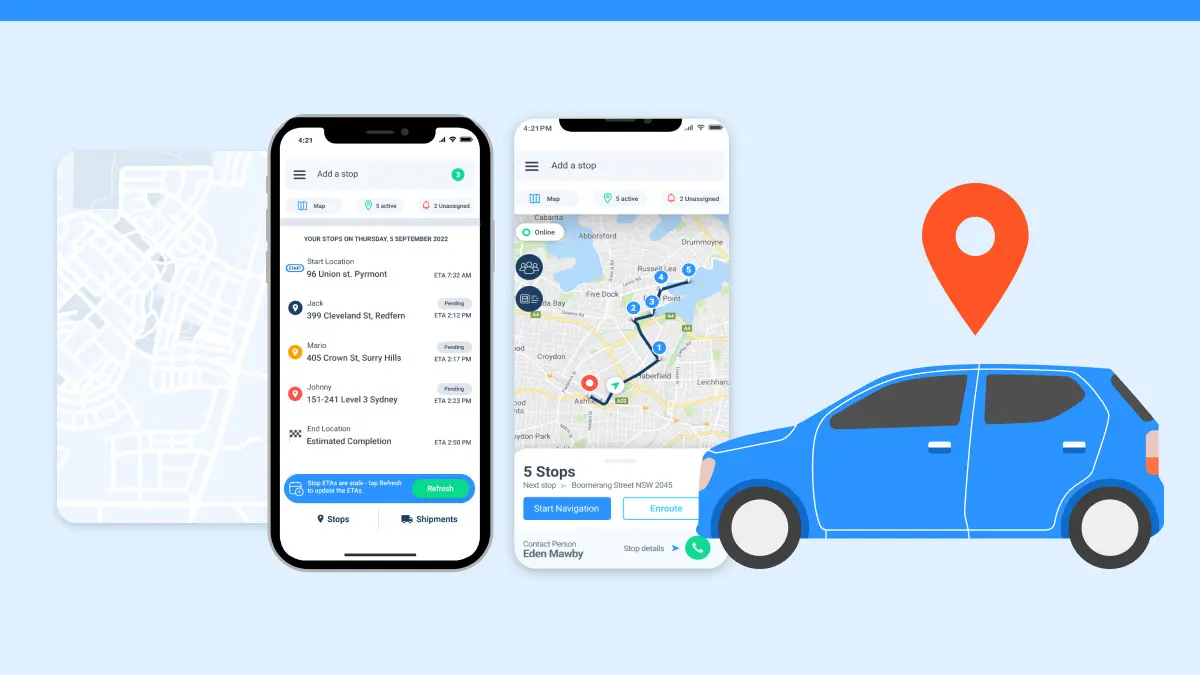Browsing the Future of GPS Monitoring: Innovations, Obstacles, and Opportunities Ahead
As we stand at the crossroads of societal effects and technical improvements, the landscape of GPS monitoring is positioned for a transformative trip ahead. The evolution of GPS innovation has been quick, introducing a brand-new period of real-time monitoring capacities that assure unprecedented levels of precision and efficiency. However, with fantastic advancement comes terrific obligation, as data personal privacy problems loom large and safety challenges in GPS monitoring raising significant questions concerning safeguarding delicate details. Yet, amidst these challenges exist covert chances waiting to be explored, using a peek into the untapped capacity of a sector at the brink of change.
Development of GPS Technology
The Development of GPS Modern technology has actually been marked by significant developments in precision, protection, and performance over the years. Established for army purposes, General practitioner innovation has actually developed to become a common device in various industries, including transportation, logistics, farming, and individual navigating. Early GPS systems were identified by minimal insurance coverage, lower accuracy, and bulkier hardware needs. With continuous technical advancements, GPS has transitioned to extra accurate and reliable systems that provide global protection and improved precision.
One key turning point in the advancement of GPS modern technology was the development of Discerning Schedule (SA) in the 1990s, which deliberately degraded the precision of noncombatant GPS signals. As GPS modern technology continues to advance, we can anticipate further improvements in performance, coverage, and precision, opening up new opportunities for technology and applications throughout different sectors.
Real-Time Tracking Developments
Building on the improvements in GPS modern technology that have actually changed precision and insurance coverage, real-time monitoring has arised as a critical area of technology with profound implications throughout numerous fields. Real-time monitoring developments make it possible for services and companies to monitor employees, properties, and vehicles instantaneously, providing beneficial understandings for decision-making processes - gps tracking. By leveraging real-time data, business can enhance operational effectiveness, enhance client solution, and ensure the security and safety and security of their properties
Among the essential improvements in real-time monitoring is the integration of man-made knowledge and artificial intelligence formulas, which make it possible for predictive analytics and anomaly discovery. These capabilities permit for positive upkeep scheduling, route optimization, and danger reduction approaches. In addition, the advancement of real-time radar has actually led to the advancement of customizable control panels and mobile applications, equipping customers to accessibility important info anytime, anywhere.
Data Privacy Concerns
Data privacy worries encompass numerous aspects, consisting of the storage space, sharing, and retention of location data. Companies have to execute robust protection steps to safeguard general practitioner monitoring information from cyber risks and information breaches. Clear plans pertaining to data collection methods and the purpose of monitoring are vital to develop trust fund with customers and make sure compliance with information security guidelines.

Security Difficulties in GPS Tracking
Resolving information privacy issues in GPS tracking is elaborately connected to mitigating the safety and security challenges that occur from potential vulnerabilities in the innovation. One of the key safety difficulties in GPS monitoring is the danger of unauthorized accessibility to sensitive place data.

Another protection difficulty is the potential helpful resources for obstructing or spoofing general practitioner signals. By interfering or relaying false signals with genuine ones, harmful stars can trick GPS receivers and manipulate place data. This postures risks not just for specific users however additionally for armed forces and governmental applications that rely upon specific placing details. Implementing durable encryption, authentication actions, and signal verification methods are important steps in attending to these safety and security challenges in GPS monitoring.
Emerging Opportunities in the Industry
The growing area of GPS monitoring modern technology presents a myriad of promising chances for market growth and development. One crucial chance lies in the expansion of GPS monitoring applications beyond typical markets. GPS monitoring can reinvent person treatment by allowing remote tracking of important indicators and ensuring prompt clinical support.
Furthermore, the increasing need for linked gadgets and IoT options presents a ripe possibility for General practitioner tracking business to increase their offerings and produce innovative services that cater to a much more connected globe. By utilizing on these emerging opportunities, GPS monitoring firms can position themselves for sustained development and success in the dynamic landscape of the sector.
Conclusion
In conclusion, the future of General practitioner tracking is marked by constant development and technology in innovation. As the industry relocates forward, browsing these challenges will certainly be essential to ensure the ongoing development and success of GPS monitoring modern technology.
With fantastic technology comes excellent responsibility, as data personal privacy issues loom large and security obstacles in GPS monitoring raise pertinent questions regarding securing delicate details.With the fast spreading of General practitioner monitoring innovation in numerous industries, addressing data privacy issues has become a crucial imperative for both customers and organizations alike. The collection of location data via General practitioner tracking raises significant get more privacy problems, as it enables the monitoring of people' habits and activities. Companies making use of GPS tracking need to focus on guarding this data to prevent unauthorized access or abuse that can compromise people' personal privacy civil liberties.
Businesses should execute robust safety procedures to secure General practitioner tracking information from cyber hazards and information violations.